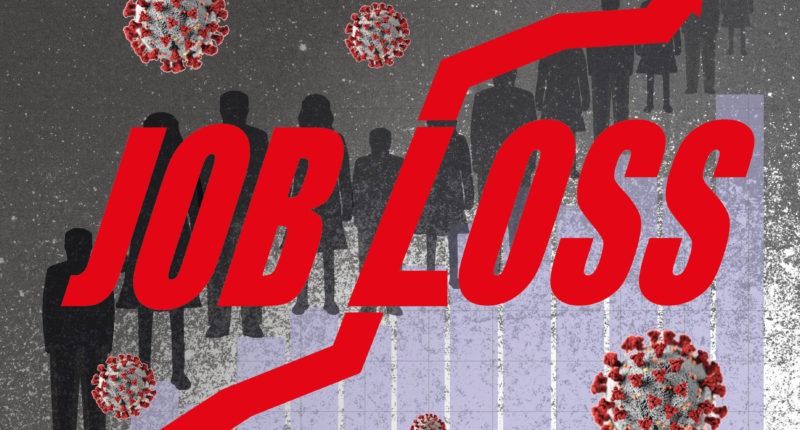As businesses struggle to survive and reduce costs in the midst of the COVID-19 crisis, many of them are modifying employee compensation systems by increasing the performance-related variable portion. Increasing the variable component may lead to cost savings for corporations, but in the short term, it may increase volatility in terms of cash flow for employees. Where the variable factor is related to the output of the employer’s companies, the uncertainty may be more significant.
Around 24% of companies said they are preparing to shift their pay composition, tilting it more towards variable pay, according to the 2020 Workforce and Increment Trends survey conducted by Deloitte Touche Tohmatsu India, which took into consideration 350 companies across 25 sub-sectors.
ITeS and life sciences are among sectors that gave higher increments to their workers, but the average increase is about 7% here too. The lowest hikes of around 2% were declared by companies in the services and manufacturing sectors, which were severely affected by the lockdown.
The average wage increase rate has also fallen since 2018. Nine out of 10 employers plan to retain or decrease the long-term salary escalation rate. For example, the salary growth in the service science sector has fallen from 8.3% in 2018 to 6.7% in 2020. The high inflation rate of 3.5%-4% is one of the reasons for this, making it difficult to explain the 10% increases provided in the previous years.
Nearly 90% of the businesses surveyed said they were considering a review of compensation plans in favour of higher components of variable pay. Organisations have not held back on incentives though increments have taken a hit. Seven out of 10 employers paid bonuses according to the employee’s results in the previous year.
This year, the number of promotions has also decreased: from 7.5% of workers receiving promotions in 2019, around 5.4% of employees were promoted this year. Some organisations are looking for a quarterly or bi-annual basis for adjusting the evaluation period.
Suspending leave encashment, reducing budgets for award ceremonies, off-sites and other annual activities, bringing services online, and conducting research to determine efficiency and optimisation of human resources are other ways in which businesses are minimising their employee expenses.
Also Read: Centre Signs MoU with Swiggy for Bringing Street Vendors Online
Experts agree that employees at the level of senior management are likely to be more impacted because their wages are typically related to the success of companies. The higher the function, the greater the variable component percentage. Although workers are accustomed to these newer wage systems in the long run, this creates a feeling of ‘pay loss’ among individuals in the short term.
However, the basic pay is not altered by most firms. Retirement benefits such as the Employees’ Provident Fund and gratuity are affected by any adjustment in the basic salary. There is no effect on retirement benefits by the variable pay since these are usually measured as a percentage of basic wages and businesses would probably never touch that.
Industry sources told CNBC-TV18 that the workers were opposed to any attempts to lay off workers in the hospitality sector by invoking their existing privileges. 20 control rooms have been set up by the Ministry of Labour and Employment to address workers’ wage-related grievances. Legal experts point out that any alteration in the conditions of employment can be construed as an offence during such periods.
HR consultants claim that by forcing workers to go on furloughs, cap wages, withhold performance-related compensation or re-configure job positions so that workers believe they are better off leaving, businesses will remain within the law.
Businesses also ask staff to hand in their letters of resignation during the layoffs. Instead of bringing their boss to court as it could affect future employment chances, most workers agree. This guarantees that it is not possible to accuse businesses of firing employees.
Many employers cannot even be able to pay maximum salaries on time at a time when firms suffer losses due to zero sales during the lockdown. So workers will choose to take lower pay than being out of a job.
What to do if you have faced a layoff or a pay cut?
- Create an emergency fund
Taking small portions of your profits, preferably 10%-15%, and putting it in an FD or a liquid mutual fund is the safest way to do this. If you have made other contributions (e.g. for retirement or tax saving), it will be easier to redirect them to your emergency fund. In case you’ve lost your work already, take some money out of your retirement fund and devote it to emergencies. Although not advisable, during these trying times, it will keep you afloat.
- Cut down your expenses
This lockdown may have helped you realise that basic living expenses are not high. It’s the costs that burn a hole in your wallet, such as dining out, travelling and entertainment, and purchasing luxury goods, need to be stopped. Try switching to cheaper accommodation if you’re new to the workforce and spend a substantial portion of your income on rent and utilities.
- Try not to take loans
You may be tempted to take a loan to tide over the crisis temporarily, but later that might pose a problem. You could opt for a moratorium on current loans, but only if you have no other choice. And after the moratorium, if you think you will not be able to repay the EMIs, liquidate any of your savings.
- Look for other jobs
If it has been difficult for you to keep alive due to a pay cut or work loss, you may want to monetise your talents and hobbies to produce additional income. Some examples are the provision of online tuition, hobby classes or teaching a foreign language. You can look for work openings in allied industries if you are the sole breadwinner in the family. You may also allow any of your financial workers to contribute to the family’s profits, such as your spouse.
- Prioritise short-term goals
If you have a certain amount of investment available but not enough to continue all your daily investments, you should preferably concentrate on non-negotiable near-term objectives. For long-term targets, as normalcy returns, there is more leeway to make up the difference. It is easy to identify how much money you need for your living expenses with discretionary expenses significantly curtailed because of the lockdown.
Whatever salary reduction, the individual faces is not permanent. It’s not that they’ve been inefficient; it’s no reflection on the abilities of the individual. Earnings will rebound back to their original level earlier, rather than later. It is also possible for companies to compensate workers for the missed revenue by offering a bonus, if possible.
For any clarifications/feedback on the topic, please contact the writer at sujaini.biswas@cleartax.in

An Editor by day and a sloth by night…I would love to eat and sleep throughout the day if given a chance…I enjoy reading and love my job and my team at ClearTax.





